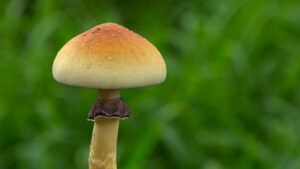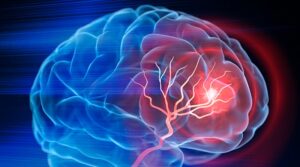Notable Elements
Variety of Strains: Learn about the different types of magic mushrooms like Psilocybe Cubensis, Psilocybe Semilanceata, Psilocybe Azurescens, and Psilocybe Mexicana, and their unique effects.
Therapeutic Potential: Discover the promising research on psilocybin mushrooms for treating depression, end-of-life anxiety, substance addiction, and PTSD.
Science Explained: Understand how psilocybin interacts with serotonin receptors in the brain, altering consciousness and potentially offering therapeutic benefits.
Legal Status: Stay informed about the evolving legal landscape of magic mushrooms, with some cities decriminalizing their use and states like Oregon allowing therapeutic use.
Safety Measures: Learn why set, setting, and professional guidance are crucial for a safe and beneficial experience with magic mushrooms.
Health Considerations: Find out why individuals with a history of psychotic disorders should exercise caution with psilocybin.
Future of Wellness: Get insights into how magic mushrooms might become a significant part of mental health treatment, backed by FDA’s “Breakthrough Therapy” designation for psilocybin therapy for depression.
Responsible Use: Understand the importance of approaching the use of magic mushrooms with responsibility, considering legality, and personal health.
Introduction
Magic mushrooms, also known as psilocybin mushrooms, have been a topic of fascination and research for decades due to their intriguing psychoactive properties. Recently, there has been a resurgence of interest in the potential wellness benefits of these fungi. With a growing body of research suggesting that various strains of magic mushrooms could offer significant mental health benefits, many wellness enthusiasts are keen to learn more about these natural wonders. In this article, we will delve into the different strains of magic mushrooms and how they are being explored for wellness purposes.
What are Magic Mushrooms?
Magic mushrooms are a type of fungus that contains psilocybin, a naturally occurring psychoactive and hallucinogenic compound. Psilocybin is considered one of the most well-known psychedelics according to the Substance Abuse and Mental Health Services Administrations (SAMHSA). There are over 180 species of mushrooms that contain psilocybin or its derivative psilocin, and they vary significantly in terms of potency, effects, and geographic distribution.
The Legality of Magic Mushrooms
Before exploring the different strains, it’s important to address the legal status of magic mushrooms. Psilocybin is classified as a Schedule I substance under the United States federal law, which means it is illegal to cultivate, possess, or consume in most states. However, there is a changing tide in the legal landscape with cities like Denver, Oakland, and Santa Cruz decriminalizing the use of these substances, and states like Oregon leading the charge in therapeutic legalization.
Always check the legal status in your location before seeking out any psilocybin-containing mushrooms for wellness or other purposes.
Common Strains of Magic Mushrooms for Wellness
When talking about wellness and magic mushrooms, it’s essential to understand that most of the current legal uses occur in controlled therapeutic contexts, often as part of research studies or experimental treatments. Below are some of the strains that are commonly encountered in such settings:
1. Psilocybe Cubensis
The most popular and widely available strain is Psilocybe cubensis. This species is favored for its moderate levels of psilocybin and psilocin, making it a good starting point for therapeutic use. Strains like Golden Teacher and B+ are known for their gentle effects that can induce a state of deep introspection and enlightenment, often used in microdosing for mental health treatment.

2. Psilocybe Semilanceata
Also known as “Liberty Caps,” Psilocybe semilanceata is one of the most naturally potent species. They are typically found in grassy meadows and pastures, usually in wet, northern climates. Users report a strong euphoric experience, which could potentially be harnessed in clinical settings for mood disorders.
3. Psilocybe Azurescens
Psilocybe azurescens is one of the strongest species known, containing up to 1.8% psilocybin. They’re often referred to as “flying saucer” mushrooms due to their shape. Because of their strength, they may offer more intense experiences, but they must be approached with caution, especially within therapeutic contexts.
4. Psilocybe Mexicana
These are famous for their history of use in indigenous Mexican spiritual rituals. Psilocybe Mexicana is known to produce a lighter, more euphoric experience and is sometimes used in therapy to stimulate creativity and resolve emotional issues.
Therapeutic Applications
Research into the use of psilocybin mushrooms for wellness is expanding, with studies exploring their use in treating a variety of conditions, including but not limited to:
Depression: Psilocybin has shown promise in treating depression, particularly in individuals who have not responded to traditional antidepressants.
End-of-Life Anxiety: Studies have indicated that psilocybin therapy can significantly reduce depression and anxiety in patients with life-threatening cancer diagnoses.
Substance Addiction: Psilocybin therapy is also being researched as a treatment for addiction, with promising results in smoking cessation and alcohol dependence.
PTSD: Early research is exploring the use of psilocybin in treating post-traumatic stress disorder.
The Science Behind the Wellness Benefits
Psilocybin exerts its effects by binding to serotonin receptors in the brain, particularly the 5-HT2A receptor. The binding of psilocybin to these receptors is thought to result in a decrease in the default mode network (DMN), which is a network of interacting brain regions. When the DMN is less active, it allows for increased connectivity across different parts of the brain, which can lead to altered states of consciousness and potentially therapeutic effects.

Safety and Considerations
While the potential wellness benefits of magic mushrooms are significant, it is critical to approach their use with caution:
Set and Setting: The context in which these substances are used can greatly influence the experience. Therapeutic settings are controlled, supportive environments that aim to ensure a positive outcome.
Guidance: It is highly advisable to have a trained professional or therapist guide the experience, especially for those with mental health issues.
Health Risks: People with a personal or family history of psychotic disorders should avoid psilocybin due to the risk of triggering a psychotic episode.
Dosage: The potency of magic mushrooms can vary greatly, and therefore, so can their effects. Proper dosing is critical, and this is often more precisely controlled in clinical settings.
Also Read : Safe and Responsible Use of Magic Mushrooms: Tips for Beginners
The Future of Magic Mushrooms in Wellness
As research continues to unfold the therapeutic potential of magic mushrooms, we may see a future where these fungi play a significant role in mental health treatment. The FDA has granted “Breakthrough Therapy” designation to psilocybin therapy for depression, expediting research and development. As societal attitudes shift and the scientific evidence base grows, we may be on the cusp of a new era in natural, plant-based wellness therapies.
Conclusion
Exploring the different strains of magic mushrooms for wellness purposes is a complex and nuanced topic that touches on legality, mental health, and personal well-being. The current momentum in research and changing legal statuses indicates a growing recognition of the potential benefits of psilocybin. As always, any exploration of this kind should be approached responsibly, with due consideration for legal, health, and psychological factors. With continued study and a careful, evidence-based approach to incorporating these natural compounds into wellness practices, we may find magic mushrooms to be a powerful ally in the quest for mental and emotional health.

Hi! I’m Jacob Hawthorne, a passionate medical student dedicated to exploring the fascinating world of psychedelics, particularly magic mushrooms (commonly known as shrooms). With a deep interest in their therapeutic potential and profound effects on the human mind, I aim to provide accurate and evidence-based information about shrooms in the Canadian context.

